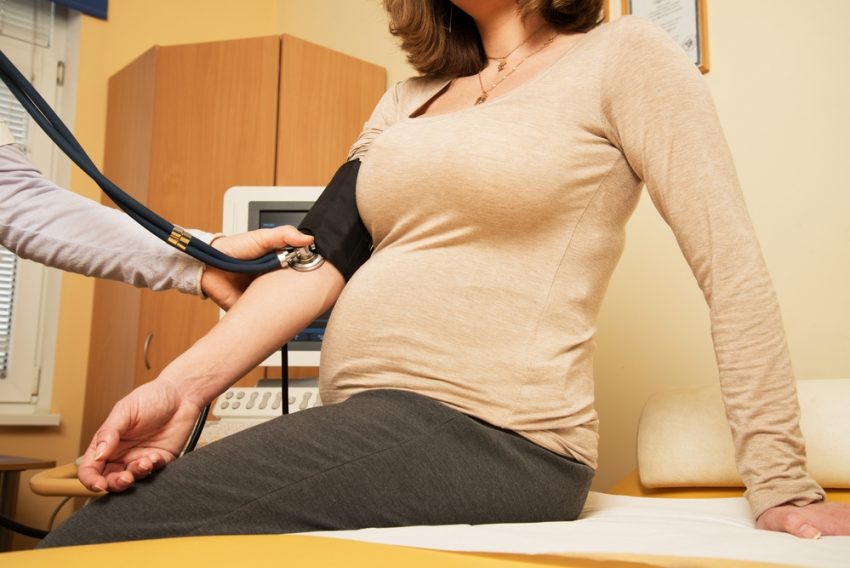Recently we spoke with Dr Lisa Murphy as Kidney Health Australia has Warned Women Risk of Fertility Issues and miscarriage by remaining unaware of their risk of developing kidney disease.In Part Two of our two-part series, we speak to Dr Shilpa Jesudason, Clinical Director at Kidney Health Australia about the importance of pregnant women maintaining healthy kidneys and relevant risk factors.
Dr Shilpa Jesudason whose work focuses on pregnancy in women with kidney disease, says that pregnancy can sometimes uncover kidney disease in women, as it may be the first time they have undergone a blood pressure check or urine test. “Pregnancy is a “stress test” for the kidneys – and in fact, your kidneys work at 150% capacity by 12 weeks of pregnancy,” said Dr Jesudason.
“Problems in either a current or past pregnancy can be a red flag for future chronic health issues. In particular women with high blood pressure during pregnancy, and especially those with pre-eclampsia (toxemia), are more likely to have underlying kidney problems or to face kidney disease and other chronic diseases later in life,” she said.
Currently, almost 850,000 women living in Australia have signs of Chronic Kidney Disease, with 968 women starting renal replacement therapy for end-stage kidney disease every year. Approximately 15-20% of the dialysis/transplant population are in their child-bearing years, so pregnancy and parenthood is a key concern for many of these women.
We are honoured to have Dr Shilpa Jesudason – Clinical Director at Kidney Health Australia answer our questions about the causes of chronic kidney disease in pregnant women.
- Are Kidney issues hereditary and would a mother be likely to pass them onto her baby?
A family history of kidney failure is a risk factor for developing chronic kidney disease. So if there’s any family history of kidney disease it’s best to see your GP for a kidney check. There are some genetic conditions that can be passed down between generations – such as Polycystic kidney disease. We are constantly learning more about the genetic influences on kidney disease and new treatments are always being developed.
- Are Women with gestational diabetes at greater risk of developing chronic kidney disease during pregnancy?
No, not usually during pregnancy. But mothers with gestational diabetes should be watched more carefully in pregnancy, and make sure their diabetes and blood pressure are kept under control. This helps get the best outcome for the baby.
We know that what happens in pregnancy can be a good marker of a mother’s future health, including her future risk of diabetes. Diabetes is a risk factor for kidney disease so it is important to watch out for diabetes in pregnancy and afterwards.
- Would a mother with gestational diabetes be more likely to suffer from Kidney disease after her pregnancy?
Gestational diabetes develops in some women when they are pregnant, and sometimes diabetes diagnosed during pregnancy is actually type 2 diabetes. Most of the time gestational diabetes goes away after the baby is born. However, if you’ve had gestational diabetes, you have a greater chance of developing type 2 diabetes later in life – which is a risk factor for kidney disease. In fact, diabetes is one of the leading causes of kidney disease in adults. If you’ve had gestational diabetes in the past, it’s best to see your GP for a kidney check.
- Are there any common symptoms one would experience if they were at risk of developing chronic kidney disease?
Chronic kidney disease is called a ‘silent disease’ as there are often no warning signs. It is not uncommon for people to lose up to 90 percent of their kidney function before getting any symptoms.
There are, however, some signs that may indicate reduced kidney function and it’s important to take note of them. These can include:
- high blood pressure
- changes in the amount and number of times urine is passed
- changes in the appearance of your urine (for example, frothy or foaming urine)
- blood in your urine
- puffiness in your legs, ankles or around your eyes
- pain in your kidney area
- tiredness
- loss of appetite
- difficulty sleeping
- headaches
- lack of concentration
- itching
- shortness of breath
- nausea and vomiting
- bad breath and a metallic taste in your mouth
- muscle cramps
- pins and needles in your fingers or toes.
These symptoms are very general and may be caused by other illnesses. However, if they are related to kidney disease they may gradually worsen as kidney function declines.
If you are experiencing a number of these symptoms, or think you are at increased risk of kidney disease, ask your doctor for a Kidney Health Check.
Kidney Health Week runs from 5-11th March, and World Kidney Day is on 8th March. Kidney Disease kills more Australians each year than breast cancer, prostate cancer and road accidents combined, and while one in three Australians is at increased risk of developing kidney related disease (and 53 are dying with it every day), most are tragically unaware they have it until it is too late.
Don’t forget – you may not have any symptoms at all, so please DON’T BE BLIND to your kidneys = see your GP and find out if you are at risk.
To take Kidney Health Australia’s ‘Are you the 1 in 3?’ test to find out if you are at an increased risk of developing chronic kidney disease, and for more information on Kidney Health Week, visit www.kidney.org.au. World Kidney Day also takes place on 8th March 2018.
Hashtag: #KHW18









